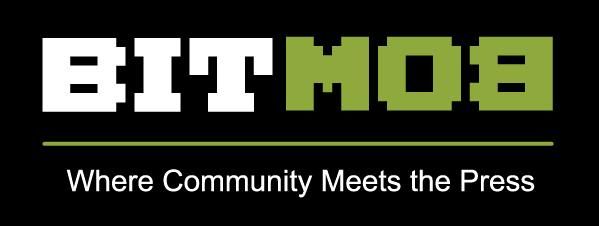This post has not been edited by the GamesBeat staff. Opinions by GamesBeat community writers do not necessarily reflect those of the staff.
Maybe you've heard, maybe you haven't, but Bitmob will be moving over to VentureBeat in a couple of months. We're quite excited that we now have the resources to continue our "Where Community Meets the Press" mission!

In the meantime, I'm going to do a few more entries in the Bitmob Writing Tips series than normal to help prep our community writers for the much larger audience over there.
Today's short lesson: Making your writing more accessible by following a basic journalism rule.
This is something we worked very hard on at the magazine I used to be the editor-in-chief of, Electronic Gaming Monthly, and if we're doing our jobs as editors here at Bitmob, you should see this philosophy around these parts as well: Writers shouldn't reference certain industry-specific elements such as companies or people without the proper context.
That means you won't ever see an article from me that name-drops "Miyamoto" (or even "Shigeru Miyamoto") without stating who he is on first mention.
Bad: I can't confirm this, but I heard even Miyamoto is a Michigan Wolverines fan.
Better: I can't confirm this, but I heard even Nintendo's Shigeru Miyamoto dislikes the Ohio State Buckeyes.
Even better: I can't confirm this, but I heard even Shigeru Miyamoto, the creator of the Mario and Zelda series at Nintendo, dislikes Ohio State and Michigan State.
 The point is this: You may know who Miyamoto is. I may know who he is. And maybe even 98% of your readers will know who he is. But proper journalism dictates that you identify who he is anyways (either by his official title or what he's done), just in case someone from that 2% is reading your article. This goes for just about everyone, too, whether you're talking about a world-famous creator of Mario and Zelda, a Bitmob staffer, or game characters like Uncharted's Nathan Drake or Splinter Cell's Sam Fisher. (Iconic dudes like Pac-Man? If grandma knows who he is, then chances are we can get away with not describing him.)
The point is this: You may know who Miyamoto is. I may know who he is. And maybe even 98% of your readers will know who he is. But proper journalism dictates that you identify who he is anyways (either by his official title or what he's done), just in case someone from that 2% is reading your article. This goes for just about everyone, too, whether you're talking about a world-famous creator of Mario and Zelda, a Bitmob staffer, or game characters like Uncharted's Nathan Drake or Splinter Cell's Sam Fisher. (Iconic dudes like Pac-Man? If grandma knows who he is, then chances are we can get away with not describing him.)
For companies, you'll see us doing little tricks like "Costume Quest developer Double Fine" (vs. just "Double Fine"). Just those extra few words make such a huge difference in the quality of your writing.
I even ask my writers and editors to avoid abbreviating anything, at least on a first mention. It's not just "E3" or "FPS"; it's the "Electronic Entertainment Expo" (maybe with "gaming-industry trade show" thrown in for good measure) and "first-person shooter" — then it can be "E3" or "FPS" for the rest of the article if need be.
I'm not saying you need to dumb everything down for the mass market. You're still penning articles for a gaming site, after all. But if you have aspirations to be a bigger and more respected writer and don't want your work to read like it only belongs in an obscure fan site, then just follow the simple rule of not writing strictly for the "in the know" audience by using "in the know" references, lingo, and terminology. Trust me — your craft and readership will grow.
By the way, you'll notice that I followed my own advice here in this post, from how I described my old job — and I know a ton of you already know I worked for EGM — to how I brought up Drake and Fisher.
